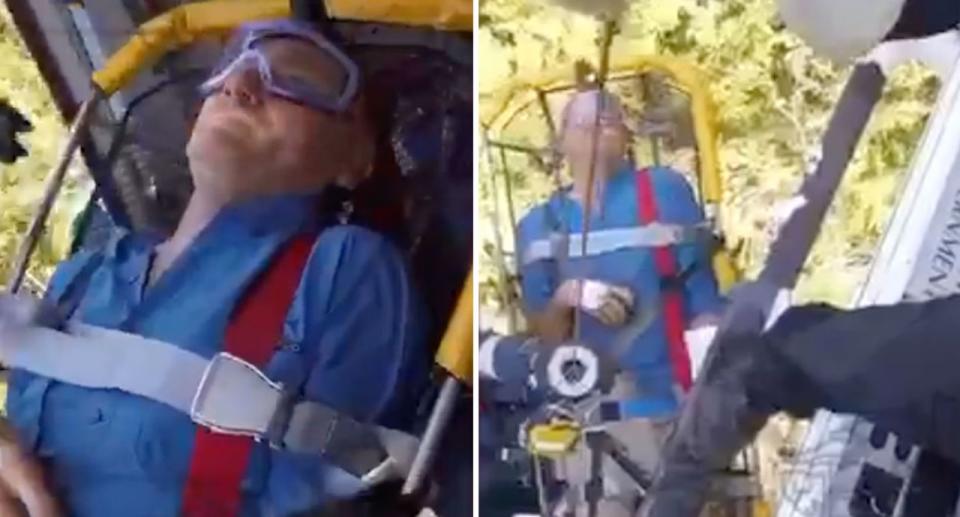Disturbing reason for new twist on iconic Aussie travel slogan
A twist on the iconic slogan Where The Bloody Hell Are You? is warning Aussies to be prepared as travel to remote and regional areas ramps up amid the coronavirus pandemic.
A new campaign launched this week is urging Aussies to avoid a Where The Bloody Hell Am I? moment as it’s revealed many travellers have little safety and communications knowledge.
GME, Australia’s manufacturer of emergency distress beacons and radio communication equipment, found 55 per cent of Australians were looking to travel domestically, with one in two people saying they’re likely to participate in an outdoor adventure activity.
However, despite more than half of Aussies being confident in their own survival knowledge, the majority actually know less than they think.

According to GME, 95 per cent of Australians aren’t aware that just 14 per cent of Australia’s landmass has mobile phone reception despite the devices being the most popular choice of safety equipment.
This means travellers could find themselves in trouble and unable to call for help.
“It’s great to see so many Aussies taking up camping, four-wheel driving and fishing for the first time, but many don’t realise that just a few clicks out of the city and you’ll need a UHF CB radio or Personal Locator Beacon if you require emergency assistance,” GME product and safety expert Tony Crooke said.

On average, 2000 people who find themselves in troubling situations are rescued per year with the help of Australia’s Search and Rescue System. That’s about five people every day.
“What many don’t know is that the success of the system is heavily dependent on its emergency beacon detection capability. Without it, many more lives would be lost,” GME said in a statement.
Bushwalker crawls for two days with ‘snapped’ leg
The importance of an emergency beacon was proven last year after a Queensland bushwalker who fell down a waterfall crawled for two days with one of his legs “snapped” above the ankle before finally being rescued.
Neil Parker, 54, fractured his leg and wrist in the six-metre fall on September 15, 2019, while walking by himself in Cabbage Tree Creek on Mt Nebo, northwest of Brisbane.
Mr Parker, who is an experienced guide with Brisbane Bushwalkers, used hiking sticks to splint his leg and then spent two days crawling back to a clearing.

He hadn’t told anybody about his quick day trip and his phone was destroyed in the fall and he had not brought a Personal Locator Beacon (PLB) with him as he normally would.
Mr Parker said it was the pain of sitting and laying on the hard rocky surface which was the worst part of the ordeal along with the “worry of not seeing my kids again”.
“It was getting very emotional thinking – it's not a nice way to die, just laying here waiting,” he told the ABC.
“I thought that I would go to sleep and I wouldn't wake up again.”
Tourism receives $250m boost
The new campaign comes as the federal government announced a $250 million boost to tourism and infrastructure in Australia’s regional areas which have been hit hard by the coronavirus pandemic.
This includes $50 million for a regional tourism recovery initiative to assist businesses in regions heavily reliant on international tourism and a further $200 million to boost infrastructure in regional communities.
"We want to make sure that our tourism regions are in the best possible shape on the other side of the COVID-19 pandemic," Trade Minister Simon Birmingham said.
with AAP
Do you have a story tip? Email: newsroomau@yahoonews.com.
You can also follow us on Facebook, Instagram and Twitter and download the Yahoo News app from the App Store or Google Play.




